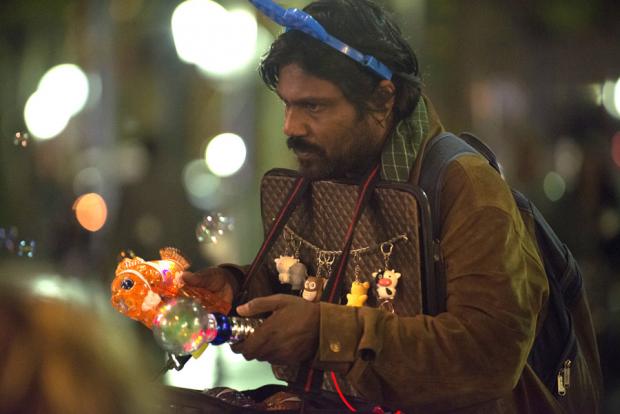The New World: Dheepan
His papers identify him as Dheepan, but it’s not his real name. The papers that get them into France as refugees also identify his wife as Yalini and their nine-year-old daughter as Illayaal. Not only are none of those names theirs, they’re not even a real family. They are Tamils who met in a camp in Sri Lanka at the end of the civil war. For varying reasons they are victims of their identities; using the papers of a dead family is their only route into the future.
Dheepan, as he goes on to call himself, was a fighter with the Tamil Tigers. He has presumably seen and done things he would prefer to forget: That’s not the subject of this film by Jacques Audiard, who has written and/or directed some of the most memorable French dramas of the past decade, including A Prophet, Read My Lips, Rust and Bone, and The Beat That My Heart Skipped. The subject of Dheepan is war refugees struggling to have a peaceful life in whatever limited options are available to them.
Like Dheepan’s past, a certain amount of the film’s story is implied: We assume that the French government, overwhelmed like most European countries by the number of people seeking asylum, is more willing to work with an apparently stable family in situating them. The three are set up in a suburb of Paris where Dheepan will work as a maintenance man.
As you may know, in France the term suburb has just the opposite connotation to its American form: Our equivalent word would be ghetto. Their new home is a housing project where jobs are scarce but gangs are plentiful. Yet for most of the film the danger of their new surroundings takes a back seat to their personal adjustments. Put together at random, man, woman and child get by as best they can, hesitant to rely on each other but learning to do so. The actors are non-professionals—Jesuthasan Antonythasan, who plays Dheepan, was himself a Tamil Tiger—but cannily used by Audiard. Their minimalism evokes the sheltered nature we might expect of cautious immigrants in a country where everything is as strange to them as the language they don’t speak.
But because Audiard is a filmmaker who wants to provide stories as much as to educate viewers about his corner of the world, those dangers rear their head. The film ends up with a burst of violence and happy ending that seem to self-consciously evoke Taxi Driver, about the last film the bulk of the movie makes you think of. It succeeds in wrapping up a story that wouldn’t otherwise have a tidy ending, but jarring as it might seem to some doesn’t minimize the accomplishment of showing us the world through different eyes.

